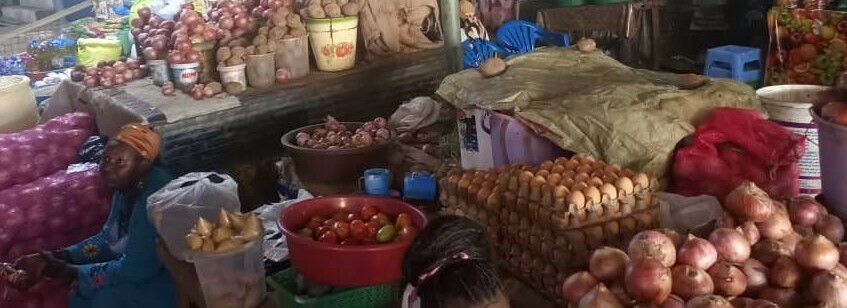A cross-section of Ruweng Administrative Area residents has decried the sharp increase in prices of commodities in local markets.
Speaking to Radio Tamazuj in Pariang and Abiemnom areas on Saturday, several residents expressed shock at the doubled prices of commodities, specifically consumable goods, and blamed the increase on the ever-increasing dollar rate.
The complaining residents said they have been facing harsh economic times that are affecting their living conditions. They urged the area’s government to intervene by reducing the prices.
Selma Luong, from Abiemnom County, said commodity prices started increasing several months ago when dollar prices shot up.
“I used to go to the market to buy items on a daily basis. Commodity prices are increasing daily. For example, 4kg of sugar is now 20,000 SSP, a similar quantity of maize flour sells at 16,000 SSP, a kilo of goat’s meat sells at 6,000 SSP, and a litre of cooking oil sells at 10,000 SSP,” she narrated.
In the last two months, 1kg of sugar has been selling at 1,500SSP, 4kg of maize flour at 1,400SSP, 1kg of beef at 1,000SSP, and a litre of cooking oil at 2,000SSP.
“We don’t know why the prices are still very high, and the dollar rate has dropped from 250,0000 to 180,0000,” Selma said.
Joseph William, another resident, said: “I don’t have enough money to buy expensive commodities. I don’t have a job to save the lives of my family. That is the reason.”
He said the current economic situation in the Ruweng Administrative Area is very harsh for the unemployed or people who do not own businesses.
“It happened during March when the dollar was high and at the same time the road from Ruweng to Sudan was blocked by the Sudan conflict. The situation in Ruweng is getting worse due to the increase in commodity prices,” he said.
South Sudan is the major oil producer in the East African region, but its near-total dependency on oil has made the resource a curse.
A 2018 peace agreement brought relative stability to the world’s youngest nation, but the inflation rate has remained very high. South Sudan’s economic crisis has been driven by the rapidly depreciating value of the local currency, shortages of hard currency, and significant dependence on imports.




